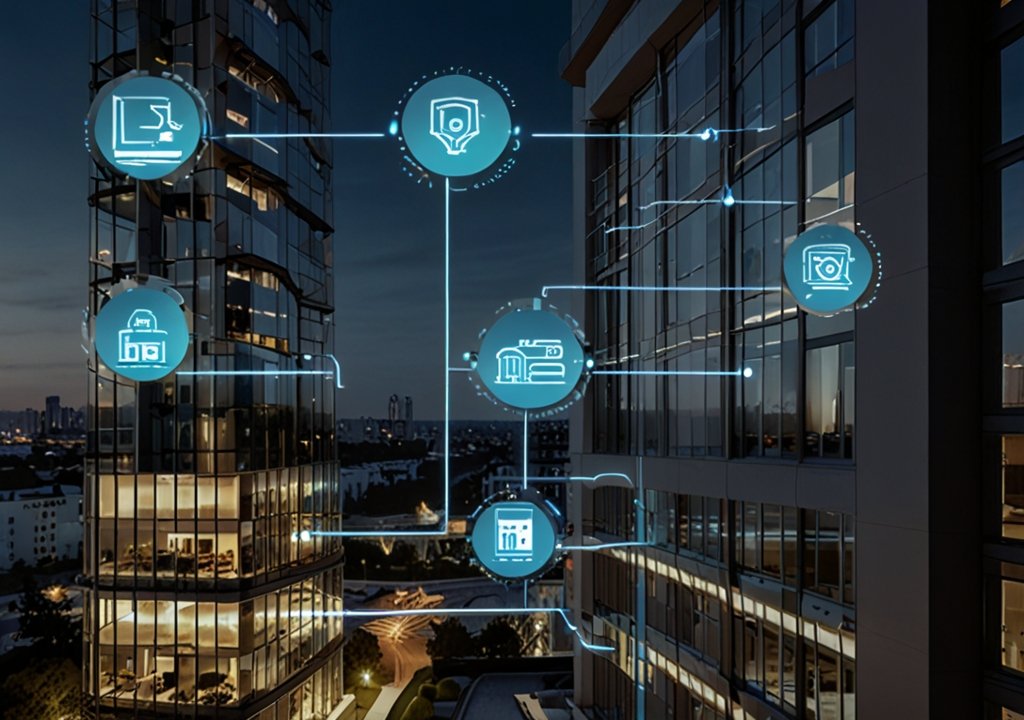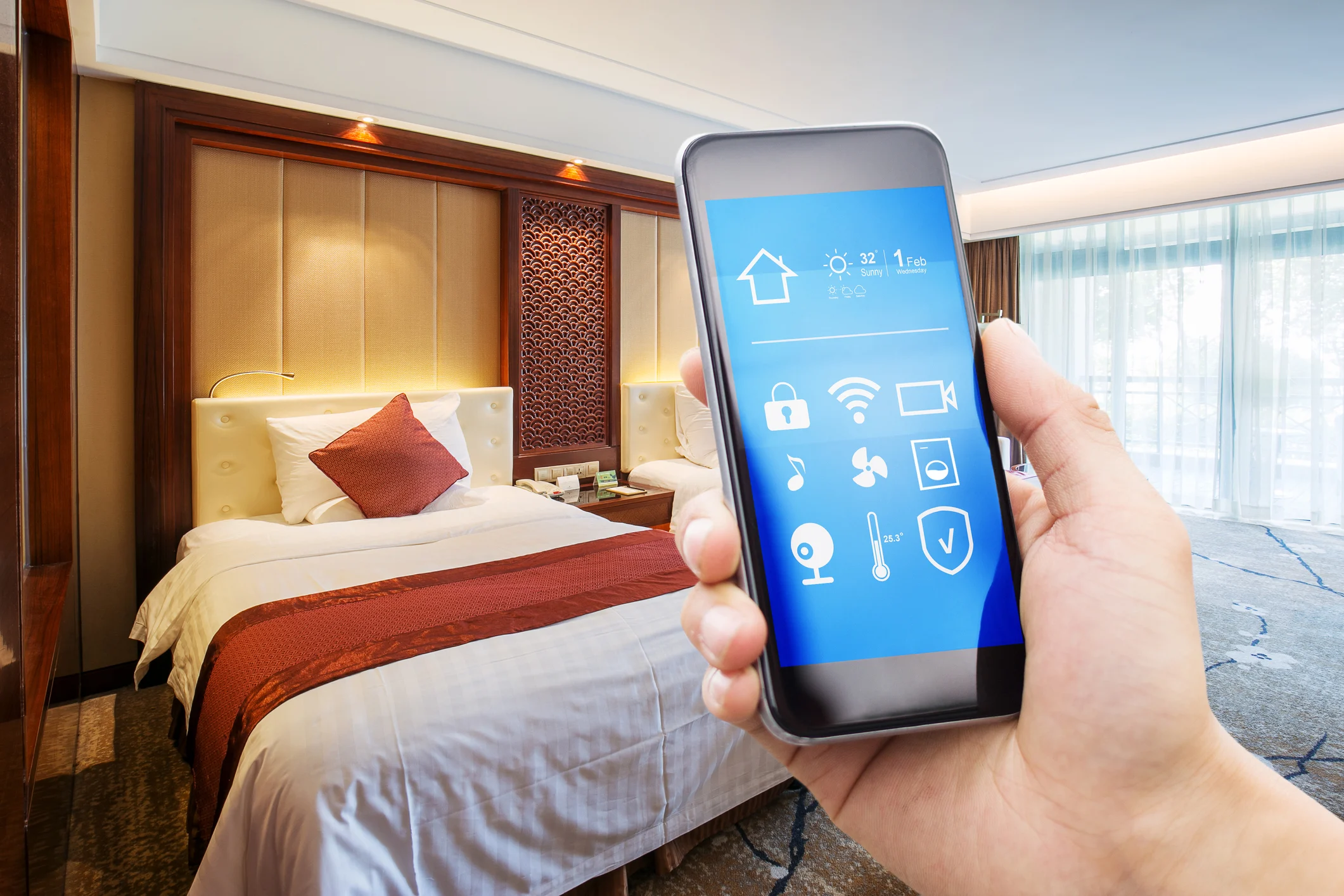Key Takeaways:
- Building automation leads to significant energy savings and operational efficiency.
- It enhances tenant satisfaction by improving comfort and convenience.
- Automation systems contribute to property value and long-term financial gains.
- They provide real-time data analytics for better decision-making and maintenance.
- Investment in building automation aligns with sustainability goals and regulatory compliance.
Introduction
In an increasingly competitive real estate market, owners and managers constantly seek innovative solutions to enhance property value, increase efficiency, and improve tenant experiences. Building automation has emerged as a transformative force in this arena, offering a suite of technologies designed to smartly manage various systems within a building, such as lighting, HVAC, and security. This technology boosts operational efficiencies and fulfills modern demands for sustainability and more innovative living environments. Embracing automation is rapidly becoming a strategic move for those seeking a competitive edge in the real estate market.
Enhanced Operational Efficiency
Investing in building automation delivers substantial enhancements in operational efficiency, marking a fundamental shift in how properties are managed. These systems automate critical operations, significantly improving energy efficiency by optimizing lighting and HVAC systems. They dynamically adjust energy consumption based on occupancy, time of day, and prevailing weather conditions, ensuring energy is utilized optimally. This reduces energy consumption, lowers operational costs, and minimizes environmental impact.
Moreover, building automation enables real-time monitoring and management of building systems, even remotely, providing property managers the ability to address issues swiftly and efficiently. This remote management capability ensures operational continuity and reduces downtime, ultimately enhancing tenant satisfaction. By improving the operational aspects of property management, these systems make buildings more profitable and sustainable.
Improved Tenant Satisfaction and Comfort
Comfort and convenience are paramount for tenant satisfaction, and building automation systems notably enhance these facets. By offering precise climate control, these systems ensure consistent and comfortable temperatures throughout the building, adapting to individual tenant preferences and external conditions. The intelligent control of these systems leads to a more comfortable living and working environment, which is a significant factor in tenant retention.
In addition to climate control, innovative lighting solutions provided by automation systems adjust based on available natural light and room usage, conserving energy while creating well-lit, pleasant spaces. This supports energy efficiency goals and enhances tenants’ health and well-being by promoting optimal lighting conditions. Furthermore, advanced security features integrated within these systems enhance tenant trust by offering better safety and privacy, thus making properties more attractive to prospective occupants.
Increased Property Value
Properties equipped with sophisticated building automation systems often see an increase in their market value. In today’s discerning real estate market, potential buyers and investors recognize the long-term benefits provided by these systems, including energy efficiency, operational savings, and improved tenant satisfaction, which collectively contribute to a property’s enhanced value. Modern advancements in building technology also signify a forward-thinking approach, adding a premium to property valuations.
Moreover, properties with enhanced technological capabilities and intelligent systems become more appealing to a broader array of potential tenants and buyers who are often willing to pay a premium for the convenience and operational cost savings these systems provide. Property owners increase marketability and future-proof their investments by investing in advanced building technologies, ensuring relevance in a rapidly evolving market landscape.
Data Analytics for Better Decision-Making
One of the most valuable aspects of building automation is the wealth of data it generates. These systems consistently gather data on energy usage, equipment performance, and occupancy patterns, providing property managers with invaluable insights into building operations. This data-driven approach empowers managers to make informed decisions regarding maintenance, repairs, and future upgrades, optimizing the building’s performance and reducing operating costs over time.
Predictive maintenance, a vital feature enabled by building analytics, assists in identifying potential issues before they escalate into costly problems, providing a proactive approach to property management. By addressing inefficiencies early, property managers can ensure buildings operate at maximum efficiency, enhancing the longevity and performance of critical infrastructure and ultimately boosting the return on investment.
READ ALSO: The Role of Continuous Integration Testing in Agile Development
Alignment with Sustainability Goals
In current business and environmental climates, sustainability is not just a goal but a requirement. Building automation aligns with sustainability objectives by significantly reducing energy usage and minimizing ecological footprints. This aligns properties with environmental regulations and reflects a commitment to sustainable practices, which are increasingly important to tenants and investors.
Automated systems play a crucial role in achieving sustainability targets, as they can halve a building’s carbon emissions and energy consumption. Property owners who invest in building automation contribute to global environmental goals, positioning themselves as leaders in sustainability and responsible property management. This sustainability focus complies with regulations and enhances the property’s appeal and marketability.
Regulatory Compliance and Future-Proofing
Advanced building automation systems help ensure compliance with evolving energy efficiency and sustainability regulations. Many regions have implemented stringent standards that buildings must meet, and automated systems provide the tools necessary for meeting and maintaining compliance with these mandates. This proactive compliance strategy avoids potential financial penalties and reflects a commitment to sustainable practices.
Furthermore, building automation facilitates future-proofing by keeping properties adaptable to technological advancements. As innovation evolves, these systems can be upgraded with new functionalities, keeping properties ahead of the curve. This adaptability ensures that properties integrate new technologies seamlessly, preserving and enhancing their long-term value and functionality.
Conclusion
Building automation represents a strategic investment for property owners aiming to maximize returns, enhance tenant experiences, and secure long-term success in a competitive market. The benefits of automation extend beyond immediate cost savings, including enhanced tenant satisfaction, increased property value, compliance with sustainability goals, and adaptability to future technological advancements. As the drive towards smarter cities and sustainable living gains momentum, integrating automation into property management is wise and essential for future-facing property owners. By embracing this technology, property owners can achieve a competitive edge while contributing to environmental conservation and enhanced tenant experiences.
YOU MAY ALSO LIKE: The Nuances of Negotiation: How AI Can Help Tailor Demand Letters for Optimal Outcomes











